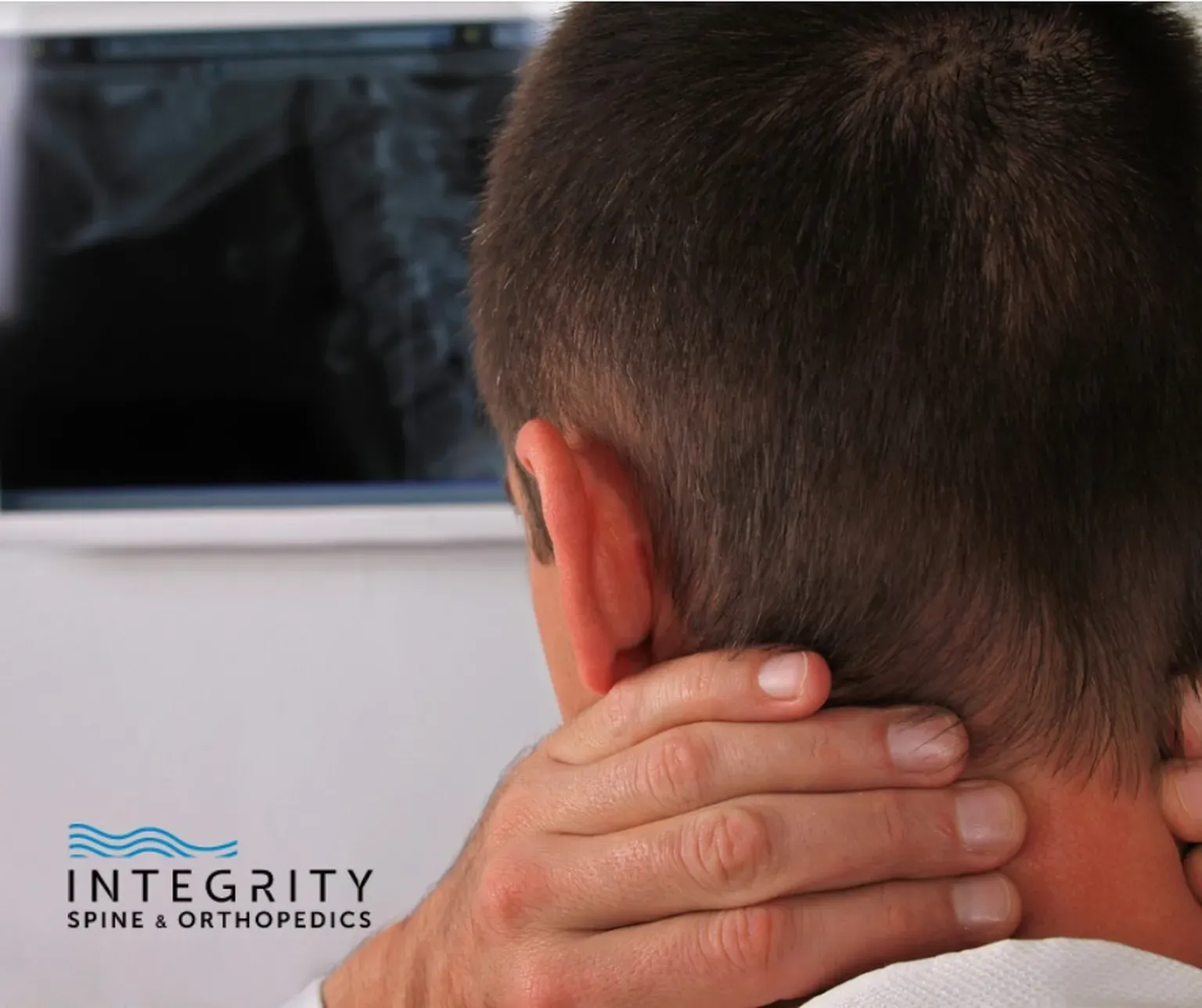Neurosurgery & Orthopedic Surgeons in Jacksonville

Do Whiplash Injuries Require Treatment?
Neck pain is one of the most common symptoms people experience after being involved in a car accident. And that’s no surprise because the head and neck are relatively unsupported and unstable during high-impact collisions.
Neck pain is one of the most common symptoms people experience after being involved in a car accident. And that’s no surprise because the head and neck are relatively unsupported and unstable during high-impact collisions. However, what is a surprise is how many people choose not to see a doctor after being in a car crash.
You may think that your neck pain is mild and will heal itself with a few days of rest. Unfortunately, your pain could be a warning sign of one of the most common car crash injuries: a whiplash injury. While common, whiplash is often ignored, undiagnosed, mistreated or not treated at all. It’s a very poorly understood condition, but it causes serious symptoms and requires proper medical care and treatment by a trained specialist.
Keep reading to learn more about whiplash and why you should undergo a medical evaluation for any type of neck pain following a traumatic accident.
WHAT IS WHIPLASH?
Whiplash is a neck injury that occurs when the head and neck are jerked back and forth in a rapid motion. The forceful movement strains and damages the ligaments, tendons, muscles and nerves in the neck. A whiplash injury can also cause injury to the spine and spinal discs. Rear-end motor vehicle accidents are the most common cause of whiplash and even low-speed car accidents can cause a neck injury. However, whiplash can also be the result of falls, sports accidents, amusement park rides and physical abuse.
Symptoms may be present immediately after an accident, or they may not appear for several days. Some people experience very mild symptoms, while others find themselves in excruciating pain. Here are common signs and symptoms to look out for:
- Neck pain
- Stiffness
- Reduced range of motion
- Difficulty moving the neck
- Pain that radiates to the shoulders, upper back and arms
- Weakness, numbness or tingling that radiates to the shoulders and arms
- Headaches that begin at the base of the skull
More severe cases may cause symptoms like jaw pain, back pain, fatigue, irritability or mood changes, blurred vision, dizziness, ringing in the ears (tinnitus), concentration/memory issues, sleep changes or depression.
You should always see a doctor if you experience pain or other symptoms after a traumatic accident. Don’t assume your injury is minor and will clear up on its own. Whiplash is a real condition that requires medical care and treatment for proper healing. Failing to receive the proper care for your condition could increase your chances of having long-term pain and symptoms. The term chronic whiplash-associated disorders (WAD) refers to chronic pain and symptoms stemming from an acute whiplash injury.
HOW IS IT TREATED?
Your treatment plan will depend on how severe your whiplash injury is. The goal of treatment is to minimize pain and restore normal range of motion in the neck. After assessing your condition, your doctor may prescribe a combination of the following:
- Ice and heat therapy. Directly following an accident, apply ice packs to your neck several times a day to reduce pain, swelling and inflammation. After the first few days, you can switch to heat packs or alternate between the two. Heat can help reduce pain and soothe sore, tight tissues in the neck.
- Medications. Over-the-counter pain medications can help relieve mild to moderate pain. If you’re having severe pain or muscle spasms, your doctor might prescribe a stronger painkiller or muscle relaxants.
- Exercises and stretching. Your doctor can give you gentle stretching and range of motion exercises to start as soon as you’re able to move without too much pain. Ideally, you should begin gentle movement within 1 or 2 days after sustaining your injury to prevent the neck muscles from getting stiff and weak. Exercises might include gentle rotation movements, tilting the neck side to side, tilting the neck up and down, and rolling the shoulders.
- Physical therapy. Once you’ve started healing, your doctor might recommend a course of physical therapy. A therapist will work with you to strengthen the neck muscles and continue restoring full range of motion.
- Alternative therapies. Alternative therapies like chiropractic manipulation, massage or acupuncture help some people reduce pain and muscle stiffness.
In the past, common medical advice to treat whiplash included resting, wearing a cervical collar and immobilizing the neck. And it’s natural to want to rest for several days if you’re experiencing neck pain, tenderness and difficulty moving. It’s OK to rest for the first few days after sustaining your injury, but there are hidden dangers of too much rest.
Research shows that prolonged immobilization may lead to increased pain, stiffness, weakness, a longer recovery period and a greater chance of developing long-term pain and symptoms. Current medical advice includes starting gentle movement and range of motion exercises as early as can be tolerated. Early range of motion is associated with a faster recovery period and a greater chance of recovering completely.
WHAT IS THE PROGNOSIS?
With proper care and treatment, many people fully recover from whiplash within a few weeks to a few months. To make a complete recovery, it’s important to follow your doctor’s recommendations for movement and activity. If you jump back into your normal activities too quickly, you run the risk of injuring yourself further.
Unfortunately, because whiplash is still so poorly understood, many patients don’t get the proper treatment plan they need to heal. If you are in a motor vehicle accident and experience neck pain afterward, we recommend seeking a medical specialist with the knowledge and expertise to diagnose and treat whiplash injuries. At Integrity Spine and Orthopedics, our board-certified orthopedic surgeons specialize in car accident injuries like soft tissue damage and whiplash.
Some people have persistent pain and symptoms from whiplash for several months or even years after being injured. Long-term effects may include chronic pain, chronic headaches, memory/concentration issues or depression. You might be at higher risk of having long-term effects if you experienced severe symptoms and pain, are older, had a previous case of whiplash or had existing low back or neck pain. Luckily, the majority of people recover completely without chronic symptoms.
CALL INTEGRITY SPINE AND ORTHOPEDICS AFTER A CAR ACCIDENT
If you’ve been in a car accident and need treatment for your injuries, contact Integrity Spine and Orthopedics. Our board-certified orthopedic surgeons have experience treating common car crash injuries like whiplash, concussions, soft tissue damage, fractures and spine damage.
Call us today at 904-456-0017 or fill out our online contact form to request an appointment.




